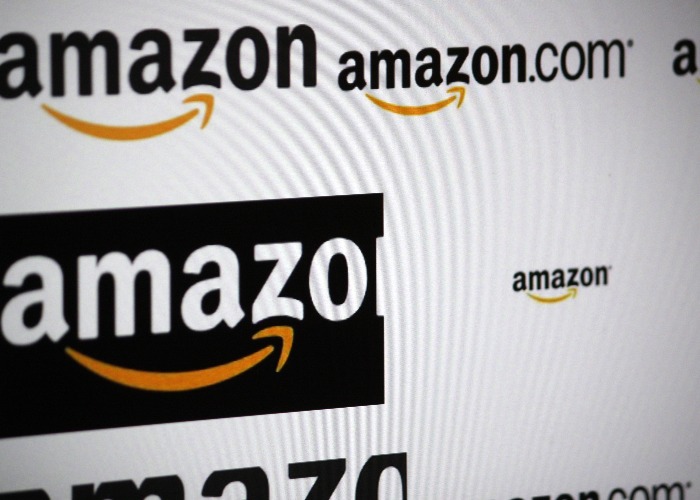Amazon voucher scam, fake order confirmation emails and more: top Amazon cons

Here are some of the most common Amazon scams around and how to watch out for this Black Friday.
Amazon scams are constantly doing the rounds as a result of the online retailer's staggering success.
Here's a look at some of the most common cons, including Amazon voucher scams, fake order confirmation emails and "random winner" cons.
Discount voucher just to say thank you
Amazon customers have been targeted with the offer of a free discount voucher just to say "thank you" for being a loyal customer.
The scam email says Amazon is “happy” to give a discount voucher which offers huge savings on a product of your choice.
The message prompts recipients to click on a link to claim the freebie or to follow another link to be taken off the mailing list.
However, both will of course take you to another site where more than likely you will be asked to enter your details.
Email selected as a random winner
The first thing worth flagging up about this scam email is that the subject line and body of the email claim different things.
The subject claims ‘Your package delivery has been scheduled for tomorrow’, but the body of the email offers you a prize.
The scam claims Amazon bagged top position as the UK’s most popular shopping website, and to celebrate, the user has been randomly chosen to get one of the various gifts up for grabs.
The email has a button to press which says: ‘Discover My Gift Now’, which will of course, redirect you to a site not associated with Amazon and scammers will be able to steal your details.
Order confirmation email
This Amazon scam regularly does the rounds and looks like a genuine order confirmation.
Action Fraud warned customers recently that “service@amazon.co.uk” was sending spoofed emails claiming users had made an order online and the template mimicked an automated email notification.
But there are many fake addresses out there sending similar emails.
In the below example, the user is said to have bought a ‘Crucial internal solid state drive’ for £125.
Unfortunately with this scam, many users might click on the link to see if there's been a mistake on their account, and somehow two accounts have been mixed up.
This isn't the case, and if you're certain you haven't ordered said item (unless the children have been using your account again), it's a scam and you should report it.
Reward Voucher
It’s sometimes hard to resist the attraction of a free reward, but unfortunately, you wouldn’t receive these sorts of vouchers from Amazon.
The scammer claims the lucky Amazon user has received a Reward Voucher for up to £500, and only has a limited time (normally until midnight) to claim their prize.
This should set off alarm bells immediately, mainly because the scammer wants you to respond as quickly as possible, making the offer of a reward seem too good to pass up for even one second longer.
By clicking the hyperlink on your name, or the large 'I ACCEPT' button, you will be redirected to a bogus site where your personal data will be jeopardised.
Gift card scams
It’s important to know that Amazon Gift Cards can only be used for purchase online at Amazon.co.uk and gift cards should only be bought via the website (https://www.amazon.co.uk), and from authorised retailers.
Amazon warns customers not to provide details on the back of a gift card (claim code) or codes received via email for electronic certificates to someone you don’t know or trust.
How to spot an Amazon scam email
Amazon it will never ask you for the following information in an email communication:
- Your National Insurance Number;
- Your bank account information, credit card number, PIN , or credit card security code (including "updates" to any of the above);
- Your mother's maiden name or other information to identify you (such as your place of birth or your favourite pet's name);
- Your Amazon.co.uk password.
Check the return address
Genuine e-mails will end in "@amazon.com", “@amazon.lu” or "@amazon.co.uk".
Although fraudsters do their best to make forged emails look real, it’s worth checking the return address to see if the email is authentic. If the “from” line of the email looks like "amazon-security@hotmail.com" or "amazon-payments@msn.com," or contains the name of another Internet Service Provider (ISP), you can be sure it's a fraudulent e-mail.
As you can see from some of the above examples, many return addresses are in no way related to Amazon and that's a telltale sign you should avoid responding or clicking on any links.
Check the website address
Scammers have been known to set up spoofed websites with "Amazon" somewhere in the URL. Legitimate Amazon websites always end in ".amazon.com" or ".amazon.co.uk", for example "sellercentral-europe.amazon.com" or "www.amazon.co.uk".
Amazon will never use combinations like "security-amazon.com" or "amazon.com.biz".
Amazon's top tips to avoid getting scammed
- DO NOT respond to an internet listing or unsolicited email or phone offer you think is too good to be true - it probably is;
- DO NOT share Amazon Gift Card claim codes or send money to anyone claiming to be an authorised agent of Amazon or Amazon Pay seeking payment;
- DO NOT make a payment to a seller who claims that Amazon or Amazon Pay will guarantee a transaction made outside of Amazon.co.uk, or refund your money if you are not satisfied with a purchase that you made offline.
If you’re still in doubt, contact Seller Support through the Contact Us form in Amazon’s Help pages.
If in doubt, check your credit report for anything suspicious. Get a 30-day free trial with loveMONEY today
Comments
Be the first to comment
Do you want to comment on this article? You need to be signed in for this feature



